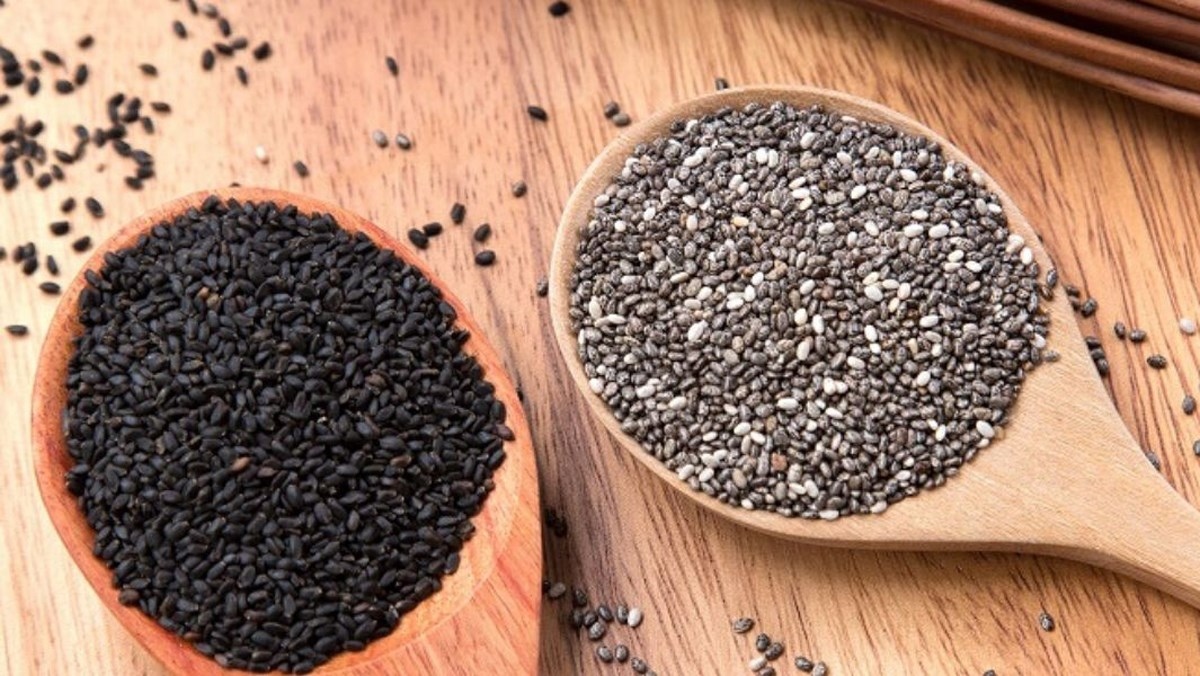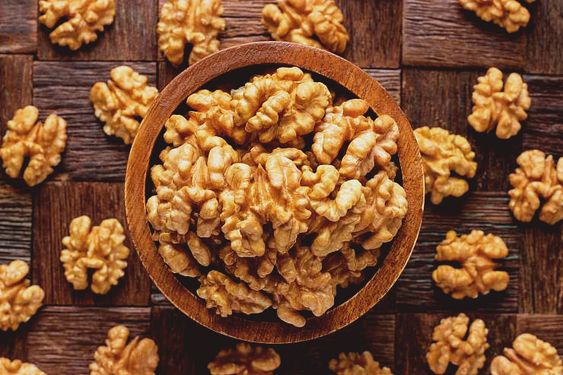Light bites, big smiles.
What seeds are good for the heart?
What nuts are good for the heart? Nuts have long been considered a healthy snack choice with many health benefits.
They also contain healthy unsaturated fats and many important vitamins, minerals, and antioxidants. Seeds can help lower blood sugar, cholesterol, and blood pressure.
This article will describe the content and health benefits of heart-healthy nuts you can eat.
1. Flaxseeds
Flaxseeds are a good source of fiber and omega-3 fats, especially alpha-linolenic acid. However, omega-3 fats are contained in the fibrous outer shell of the seed, making them difficult to digest.
So, if you want to increase your omega-3 intake, it is best to eat ground flaxseeds.
There are two types available: brown and golden, both of which have the same nutritional value. According to the United States Department of Agriculture, one tablespoon of ground flaxseed (7 grams) contains:
Calories: 37.4 calories
Protein: 1.28g
Fat: 2.95g
Carbohydrate: 2.02g
Fiber: 1.91g

Flaxseeds may protect heart health in several ways, primarily by reducing risk factors for heart disease, such as:
High in omega-3 fatty acids
Flaxseeds are a good source of alpha-linolenic acid (ALA), an omega-3 fatty acid that is important for heart health and is found primarily in plant foods.
ALA is one of the essential fatty acids that you must get from the foods you eat because your body does not produce it.
Animal studies show that the ALA in flaxseeds may help reduce inflammation and prevent cholesterol from building up in your heart’s blood vessels.
A study of 8,866 people found that ALA reduced cholesterol levels and reduced the risk of ischemic heart disease, which is related to narrowed arteries, and type 2 diabetes.
Improves cholesterol levels
A study of 50 adults with high cholesterol found that those who ate about three tablespoons of roasted flaxseed powder every day for three months had significantly lower levels of total cholesterol and LDL cholesterol (or “bad”) compared to a control group. They also saw an increase in HDL cholesterol (or “good”).
Prevents high blood pressure
A study from the US National Institutes of Health suggests that this seed may be especially effective for people with high blood pressure.
In fact, a small 12-week study found that taking 4 tablespoons (30 grams) of flaxseeds per day reduced blood pressure in people with high blood pressure.
2. Chia Seeds
Chia seeds are a rich source of fiber, which can improve heart health, lower cholesterol levels, and promote gut health.
Fiber takes longer to digest and makes you feel fuller for longer, which is how it may help with weight loss and reduce the risk of diabetes or heart disease.
According to the United States Department of Agriculture (USA). Nutritional values per 28g serving of chia seeds or 1/2 tablespoon contains:
Calories: 131 (Kcal)
Fat: 8.4g
Carbohydrate: 13.07g
Fiber: 11.2

3. Walnuts
Walnuts are considered part of a healthy diet because of their high protein, fiber, and healthy fat content
A daily serving of walnuts, which is 1 ounce, 1/4 cup, or 6-7 walnuts, has the following composition
Calories: 190 (Kcal)
Fat: 18g (including 13g unsaturated fat)
Carbohydrate: 4g
Protein: 4g
Fiber: 2g
Sugar: 1g

Walnuts contain 2.5g of omega-3 fat per 1-ounce (28-gram) serving, which is significantly higher than any other nut.
Research from the National Institutes of Health shows that omega-3 fat from walnuts is also known as alpha-linolenic acid (ALA), and every gram of ALA you eat per day reduces your risk of dying from heart disease by 10%.
Inflammation is at the root of many diseases, including heart disease, type 2 diabetes, Alzheimer’s disease, and cancer, which may be caused by oxidative stress.
Research from the National Institutes of Health shows that the polyphenols in walnuts may help fight this oxidative stress and inflammation.
They may help reduce the risk of blood clots that can cause a heart attack. The omega-3 fat ALA, magnesium, and amino acid arginine in walnuts can also reduce inflammation
5. Almonds
Almonds are a staple in a healthy diet because they can provide a multitude of health benefits.
Like some other prominent nuts, almonds are rich in fat, specifically the healthy monounsaturated fat. This type of fat is quite beneficial for overall heart health.
Nutritional information for 1 ounce (28 grams) of almonds or about 24 whole almonds includes:
Calories: 164 (Kcal)
Fat: 14.2g
Sodium: 0.3mg
Carbohydrate: 6.1g
Fiber: 3.5g
Sugar: 1.2g
Protein: 6g
Vitamin E: 7.3mg
Magnesium: 76.7mg

Almonds maintain healthy heart health, reduce the risk of heart attack, stroke
Eating almonds can help improve and maintain your cardiovascular health because they can lower cholesterol levels.
This is because eating almonds can help reduce levels of LDL lipoprotein (1), known as ‘bad cholesterol’. Almonds also protect LDL from oxidation, which is an important step in the development of heart disease.
A 16-week study in 65 people found that a diet providing 20% of calories from almonds reduced LDL cholesterol levels by an average of 12.4 mg/dL
The magnesium in almonds may also help lower blood pressure. High blood pressure is a leading cause of heart attacks, strokes, and kidney failure
5. Peanuts
Peanuts are a rich source of calories and monounsaturated fat (the good kind that helps lower cholesterol). Peanuts are high in protein and provide amino acids needed for growth and development.
Nutrition facts for 1 ounce of raw peanuts (unroasted), no added salt include:
Calories: 160g
Protein: 7g
Fat: 14g
Carbs: 5g
Fiber: 2.4g
Folate: 68mg (17% of the Recommended Dietary Allowance (RDA))
Magnesium: 49mg (15% of the RDA)
Potassium: 196mg (8% of the RDA)
Iron: 0.7mg (4% of the RDA)
Peanuts are a powerhouse of energy and nutrients. Their combination of fiber, protein, and fat helps keep you feeling energized after a meal.
And they provide an impressive amount of important nutrients like folate, magnesium, potassium, and iron.
Magnesium is needed for many bodily processes, including regulating blood pressure and maintaining a regular heartbeat, and there is a positive link between heart health and peanut consumption.
Peanuts have a combination of soluble and insoluble fiber, which has many heart health benefits, one of which is helping to lower LDL (“bad”) cholesterol. Peanuts also contain niacin (vitamin B3), which is important for healthy heart function.
One study found that consuming just over 1 ounce of peanuts per day (42g) for 12 weeks helped participants lower their blood pressure, cholesterol, and triglyceride levels. Additionally, the anti-inflammatory effects of the antioxidants in peanuts may help reduce the risk of coronary heart disease.
6. Pumpkin Seeds
Pumpkin seeds are a rich source of healthy fats, fiber, and various antioxidants known to support heart health.
In addition, the seeds contain monounsaturated fatty acids, which help control cholesterol in our bodies. Additionally, the magnesium content in the seeds helps control blood pressure levels.

The following nutritional information is for 1 ounce (28g or 85 seeds) of unsalted, whole roasted pumpkin seeds:
Calories: 126 (kcal)
Fat: 5.5g
Sodium: 5mg
Carbohydrate: 15.2g
Fiber: 5.2g
Protein: 5.3g
